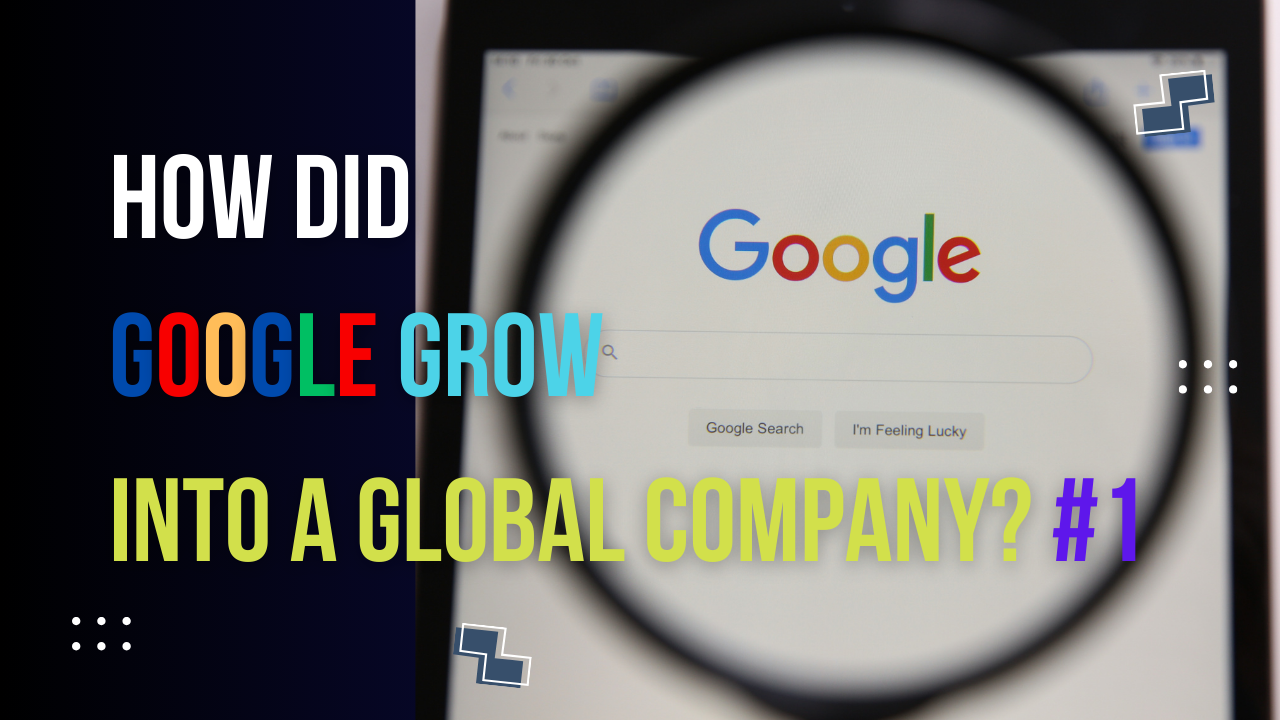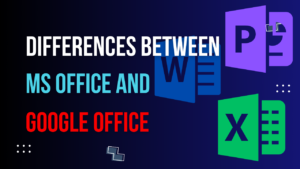Table of Contents

How did Google become a company that dominates the world? To answer this, we must explore the early days of the internet revolution, where Google’s innovative strategies and relentless progress played a crucial role. This article delves into Google’s evolution into a global tech titan and analyzes the factors behind its success.
The Dawn of the Internet and the Birth of Google
The Beginning of the Internet Era
Before we talk about Google, let’s understand the backdrop – the birth of the internet. In the simplest terms, the internet began as a way to connect computers so they could communicate with each other. This was a big deal because, for the first time, information could travel fast and wide, connecting people across the globe.
Enter Google
Now, into this world of connected computers and flowing information, enter Google. The story starts in the mid-1990s at Stanford University. Two PhD students, Larry Page and Sergey Brin, were interested in how this growing web of information could be organized efficiently.
The Idea Behind Google
Their big idea was to create a system to sort through all the web pages on the internet. But how? They thought, “What if we could determine the importance of a web page based on how many other pages link to it?” It’s like saying a book is important if many other books reference it.
Backrub – The Precursor to Google
They began a project named “Backrub.” This was a playful name, reflecting how the system they were designing would ‘backtrack’ links from one web page to another. Their method was unique because, unlike other search engines of the time that just counted how often a term appeared on a page, Backrub looked at the relationships between pages.
From Backrub to Google
This project evolved and took on a new name – Google. The name ‘Google’ is a play on the word ‘googol,’ a mathematical term for a 1 followed by 100 zeros. It symbolized the immense amount of information they wanted to organize. In 1998, Google Inc. was officially founded.
Google’s Unique Approach
Google’s search engine was different because it used this new method (now known as PageRank) to rank web pages not just by content but by their relevance and importance. This was revolutionary. It meant that when you searched for something on Google, you were more likely to find useful and high-quality pages.
Impact on Users
For users around the world, Google became a window to the vast internet. It made finding information easier and faster. This was the beginning of Google’s journey to becoming a household name, synonymous with internet search.
In simple terms, Google’s birth during the dawn of the internet was a story of innovative thinking, where two students looked at the growing web of information and found a smarter way to organize and access it. This innovation laid the foundation for Google’s journey to becoming one of the most influential companies in the world.
Google’s Growth Strategy Explained
Expanding Beyond a Search Engine
Google started as a search engine, but it didn’t stop there. Its growth strategy involved expanding into various other areas. Let’s break down how Google grew beyond just helping people find information on the web.
Diversification of Products and Services
- Gmail: Google introduced Gmail in 2004. This was more than just an email service; it offered significantly more storage than competitors, and it integrated with other Google services, making it a central part of Google’s suite of online tools.
- YouTube: In 2006, Google acquired YouTube, a popular video-sharing platform. This expanded Google’s reach into the world of online video, a rapidly growing sector.
- Android: In 2008, Google launched the Android operating system. This was a strategic move to enter the mobile market. Android is now the most widely used mobile operating system globally.
- Google Maps: Another significant product is Google Maps, introduced in 2005. It revolutionized how people navigate and explore the world, offering detailed maps, directions, and business listings.
- Google Drive and Cloud Services: Google also ventured into cloud storage with Google Drive, providing users with a place to store their digital files online. This was part of a broader move into cloud computing services, catering to both individual users and businesses.
Monetization Through Advertising
Google’s main source of income is advertising. Here’s how it works:
- AdWords (now Google Ads): Businesses pay to have their advertisements appear in Google’s search results and on other websites. This is known as pay-per-click advertising, where businesses only pay when someone clicks on their ad.
- AdSense: This service allows website owners to place Google ads on their sites. They earn money when visitors click on these ads.
Data and Personalization
A key part of Google’s strategy is using data to personalize user experiences. By understanding user preferences and behaviors, Google can deliver more relevant search results and ads. This not only improves the user experience but also makes ads more effective for advertisers.
Strategic Acquisitions
Google has made several strategic acquisitions over the years:
- Motorola Mobility: Acquired in 2012, this move was partly to bolster Google’s patent portfolio in the mobile industry.
- Nest Labs: In 2014, Google acquired Nest, entering the smart home market.
Continual Innovation
Google invests heavily in research and development. This leads to continual innovation in areas like:
- Artificial Intelligence (AI): Google is a leader in AI research, which is now a core part of its products, including search, ads, and cloud computing.
- Other Ventures: Google, through its parent company Alphabet, explores new technologies like self-driving cars (Waymo) and healthcare tech.
Discover More
As we wrap up our journey through the hidden layers of the internet, it’s clear that the digital world is vast and full of mysteries. But the exploration doesn’t have to stop here! If you’re intrigued by the complexities of the internet, you might also enjoy delving into these related topics
Microsoft Founded History Series 1 – ReViewMaster DEN (rvmden.com)
Microsoft Founded History Series 2 – ReViewMaster DEN (rvmden.com)



